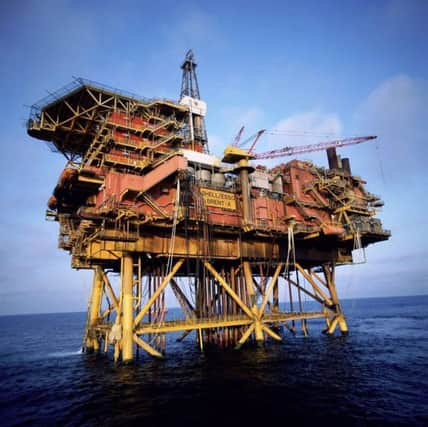Shell submits plan to decommission Brent field


The firm - the operator of the field - has submitted its “comprehensive” decommissioning programme to the UK Government, triggering a 60-day consultation on the proposals.
Advertisement
Hide AdAdvertisement
Hide AdShell said the move marks an important milestone in the history of the field, as it insisted its plans for the four Brent platforms are “environmentally sound and financially responsible”.
Environmental campaigners said they would scrutinise the proposals to understand their “full potential impact”.
The field, 115 miles north-east of Shetland, has produced the equivalent of around three billion barrels of oil - almost 10% of UK production - since it began operating in 1976.
The decommissioning programme recommends the upper steel jacket on the Brent Alpha platform is removed, along with the topsides of the four Brent platforms, debris on the seabed, and oil in the concrete storage cells of the base structures.
Other parts would remain in place, including three gravity base structures, Brent Alpha’s footings and sediment in concrete storage cells.
Production from Brent Delta stopped in 2011, and from Brent Alpha and Brent Bravo in 2014. Production from the field will continue, via Brent Charlie, for several years to come, Shell said.
Work to prepare for Brent decommissioning started in 2006. Shell has already begun decommissioning one platform, Brent Delta, but the new proposals cover the whole field.
Brent decommissioning asset manager Duncan Manning said: “Shell has undertaken thorough analysis, extensive scientific research and detailed consultation with over 180 stakeholder organisations over the past 10 years.
Advertisement
Hide AdAdvertisement
Hide Ad“Working within the tightly defined regulatory process, we believe that our recommendations are safe, technically achievable, environmentally sound and financially responsible.”
Deirdre Michie, chief executive of industry body Oil & Gas UK, said: “Ground-breaking ingenuity was required to bring the Brent field, located in the deep waters of the northern North Sea, into production and these skills will be required into the future as industry seeks to maximise economic recovery of the UK’s oil and gas alongside delivering decommissioning in a safe, environmentally responsible, and cost-efficient way.”
WWF Scotland director Lang Banks said the charity would begin reading the 4,000 pages of technical documents published to prepare its response to the consultation.
He added: “Oil and gas companies operating in the North Sea have a legal, as well as moral, obligation to clean up their mess. Having once pushed the boundaries of science and engineering to secure the oil and gas beneath the seabed, the industry should show the same innovation when it comes to decommissioning.
“If done right, it could open the door for this country to lead a new multibillion-pound global decommissioning industry that could create thousands of jobs as we continue our transition away from fossil fuels.”
The recommendations and consultation responses will be scrutinised by the UK Department for Business, Energy and Industrial Strategy.
A spokesman said: “Any decommissioning plan will be carefully considered by the Government, taking into account environmental, safety and cost implications, the impact on other users of the sea and a public consultation.”